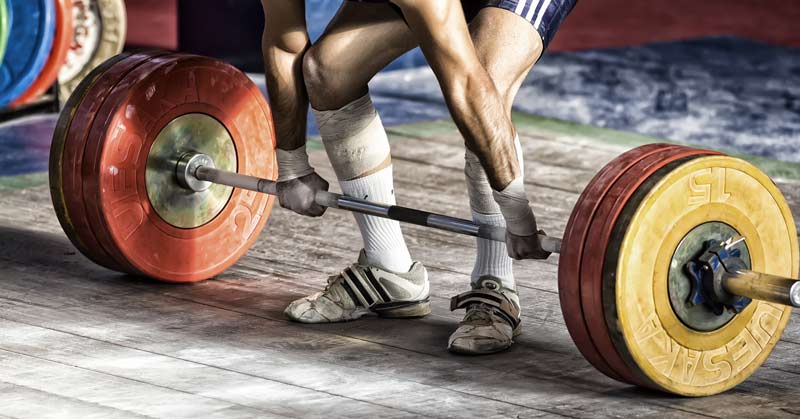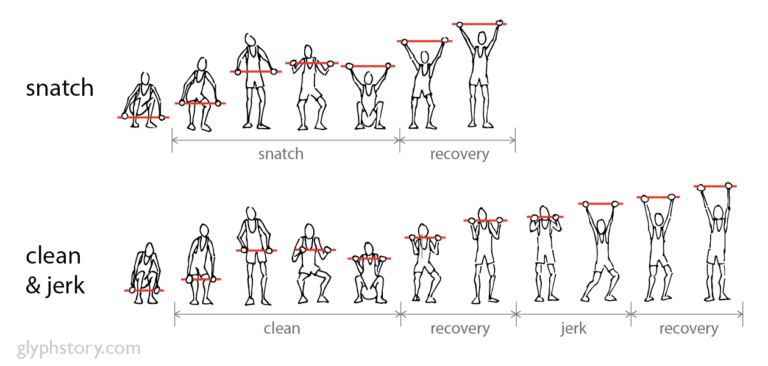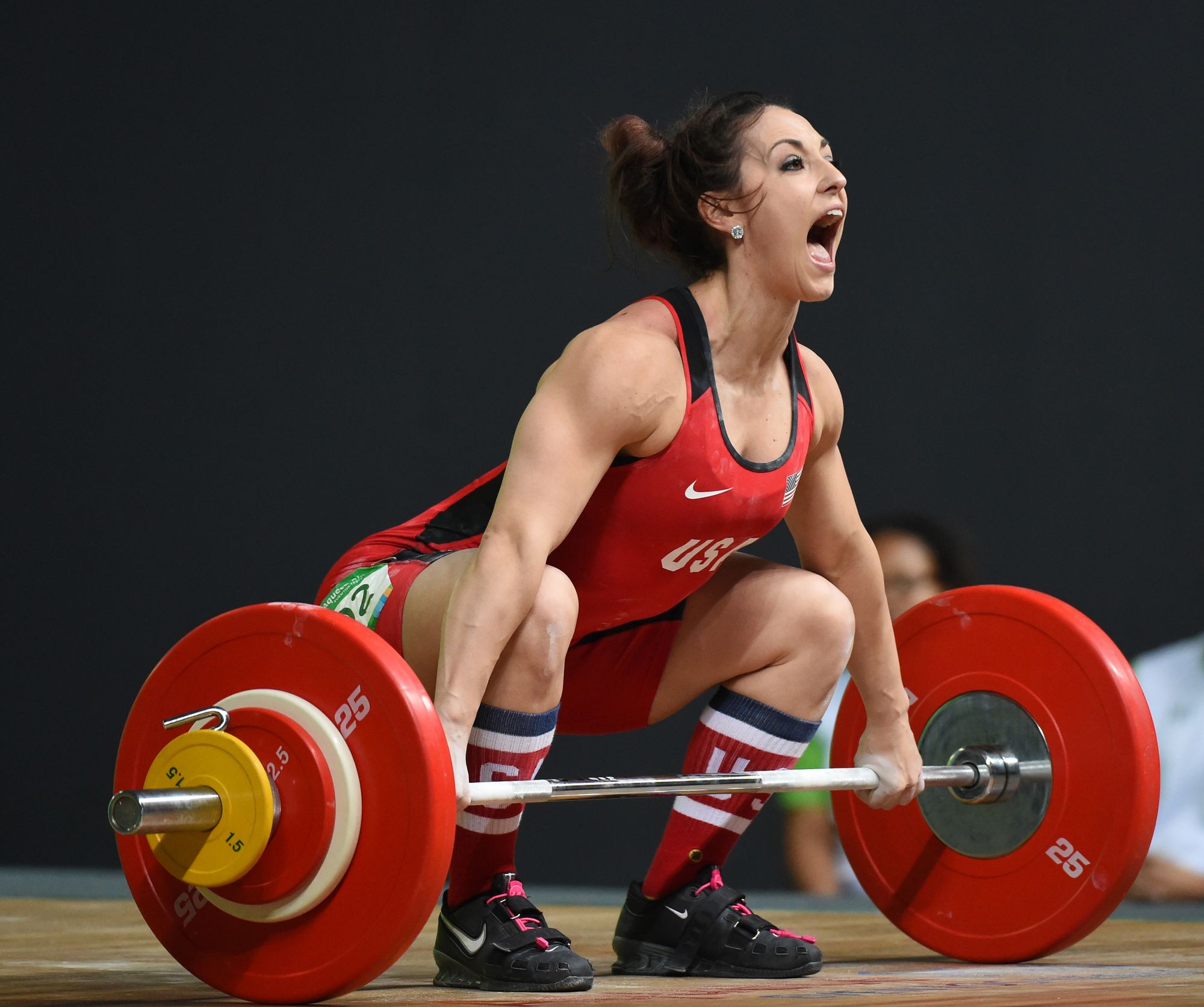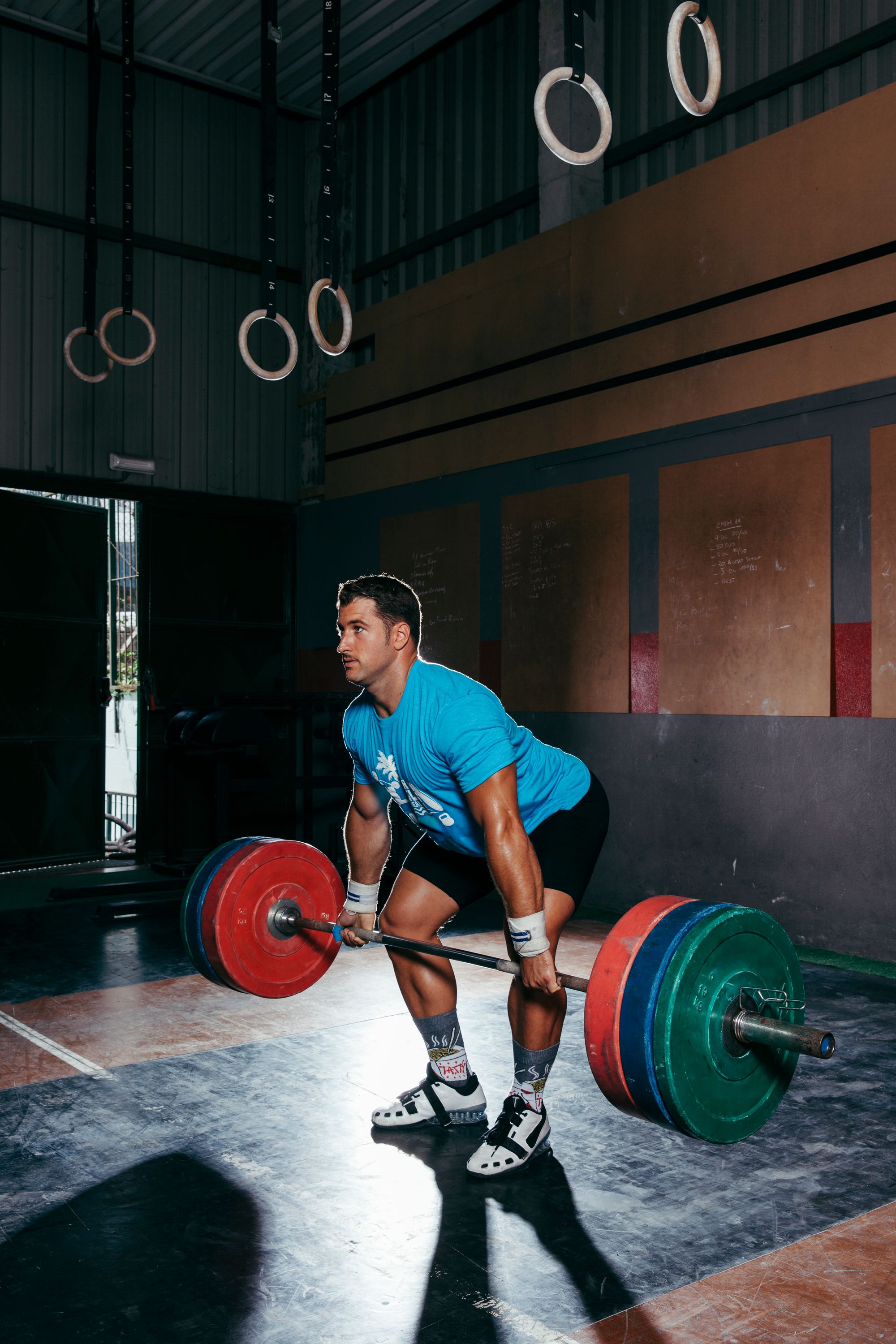Why you should try Olympic weightlifting

If you follow me on social media, you may have seen some strange videos of me throwing a loaded barbell overhead. "What are you doing?" you might ask.
"Oh, just weightlifting", I would respond.
"Weightlifting? But it doesn't look anything like the exercises that I see people do at 24 Hour Fitness."
"Oh, well, it's Olympic weightlifting."
"What? You're going to the Olympics?!"
"No no no, the term 'Olympic weightlifting' just describes a specific sport that involves two ways to dynamically lift weight overhead."
"Ok, now you've lost me."
What is Olympic weightlifting?
Olympic weightlifting is a power sport that has been part of the Olympic Games since 1920. It is practiced by athletes throughout the world, but is still relatively obscure in American popular culture.
Olympic weightlifting involves two main lifts: the snatch and the clean and jerk. Unlike more popular gym exercises such as bench presses or bicep curls, these lifts are highly technical and require precise control to perform correctly.

The Snatch: In this lift, the athlete lifts the barbell from the ground to overhead in one continuous motion. It’s a test of explosive power and technique.
The Clean and Jerk: This lift is performed in two stages. First, the barbell is lifted from the ground to the shoulders (the clean), and then from the shoulders to overhead (the jerk). This lift also demands explosive power but adds an element of strength and stability.
In the United States, Olympic weightlifting is often misunderstood and less visible than mainstream fitness activities. Many people associate the term "weightlifting" with the bodybuilding or powerlifting, which are completely different sports with different goals and training methods.
One reason why it might be less popular here is that weightlifting training goes against our cultural bias toward instant gratification and quick hits of dopamine. Unlike other strength sports, weightlifting won't reward you with gains right away. Due to its complexity, it requires more time to learn and master technique. You won't be able to pull big weight in weeks or even months. But when you do put in the work needed to progress, it is much more gratifying.
Why I love it and think more people should try it
Despite the high barrier to progress, I thoroughly believe that more people would benefit from Olympic weightlifting. In particular, it's a great fit for the ambitious, career-oriented, overachieving type. Let me tell you why.

Efficient Full Body Training
One of the primary reasons I love Olympic weightlifting is that it covers a lot of bases in a short amount of time. The snatch and the clean and jerk engage your entire body and require a unique combination of strength, speed, balance, mobility, and coordination. Each lift takes under a second to complete, but within that second, you get pretty close to fully expressing the power that your body and brain are capable of.

For those of us who aim to be well-rounded and ready for whatever life throws at us, a multi-purpose fitness routine is essential. Olympic weightlifting, combined with cardio, creates a comprehensive workout regimen that touches on many dimensions of fitness.
Surprisingly Low Risk of Injury
Another reason I advocate for Olympic weightlifting is its low risk of injury. On average, there are only 2-3 injuries for every 1,000 hours of training, which is less than half the rate of recreational running and less than one-eighth the rate of basketball. Additionally, over 90% of the injuries incurred in Olympic weightlifting do not require more than a day of rest.
For high-performing professionals, the risk of injury is a significant consideration. When others depend on you at work, you can’t afford to be sidelined by an injury. Olympic weightlifting provides a safe and effective way to stay fit without the high risk of injury associated with many other sports.
Mental Toughness
The mental game in Olympic weightlifting is another aspect that makes it incredibly valuable. This sport requires you to be mentally dialed in. You can’t just show up, tune out, and go through the motions. Tiny mistakes in position or timing can cause you to miss a lift that you would otherwise make. It’s an excellent opportunity to work on your ability to focus in a world full of distractions.
Moreover, weightlifting strengthens your resilience and teaches you to overcome mental obstacles. Just like in life, you can execute your plans perfectly and still fall short of your goals. The unpredictable nature of progress in weightlifting mirrors the unpredictability of life. Sometimes, despite months of preparation, you might fail spectacularly when attempting a personal record.

However, the more you practice picking yourself up and moving forward, the better you get at it. This mental toughness and resilience carry over into all aspects of life, making you stronger and more adaptable.
Practical advice
If you're interested in trying out weightlifting for yourself, I only have one piece of advice: GET A COACH.
Seriously, you won't regret it.
If there isn't a club near you, then there are plenty of options these days for online coaching. You may also be able to find a CrossFit trainer to introduce you to the movements in person.
But by all means, do not try to teach yourself with YouTube tutorials. There's a lot more to these lifts than what you see on the surface and it can take years to correct poor technique that has been ingrained with practice.
Good luck and don't hesitate to reach out if there's anything I can help with!


